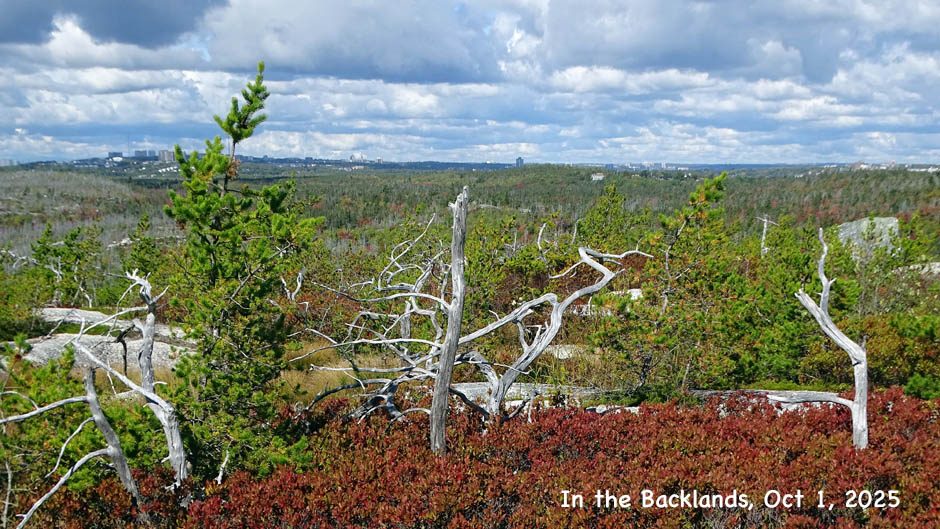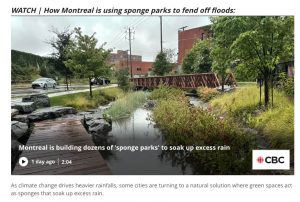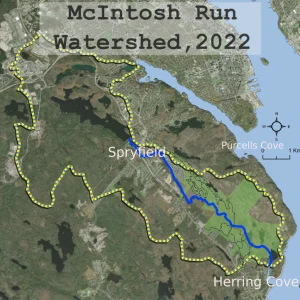Backlands Coalition Response to the Housing Accelerator Fund proposed amendments Regarding the Suburban Development Requests:
Our position reflects our values

Watersheds identified in Steeghs et al., 1994.
Click on image for larger version
The mission of the Backlands Coalition: to ensure no loss of wildlife habitat in the Backlands and to preserve them for natural, historical, cultural, conservation, educational, recreational and common use. There are two major watersheds that are present in the Backlands, the Williams Lake Watershed and the McIntosh Run Watershed. We have an interest and a stewardship responsibility in maintaining the integrity of these two watersheds.
An unprecedented degree of development and growth is slated for Spryfield. We are very aware that growth is necessary in our area. We believe that growth should enhance the community, enrich its character and promote sustainability. In addition to the Suburban Development Requests there are other site-specific requests and developments already approved for the Spryfield area. Each new request needs to be considered within the context of the whole Spryfield community and the capacity of the current infrastructure to support this growth. Continue reading









